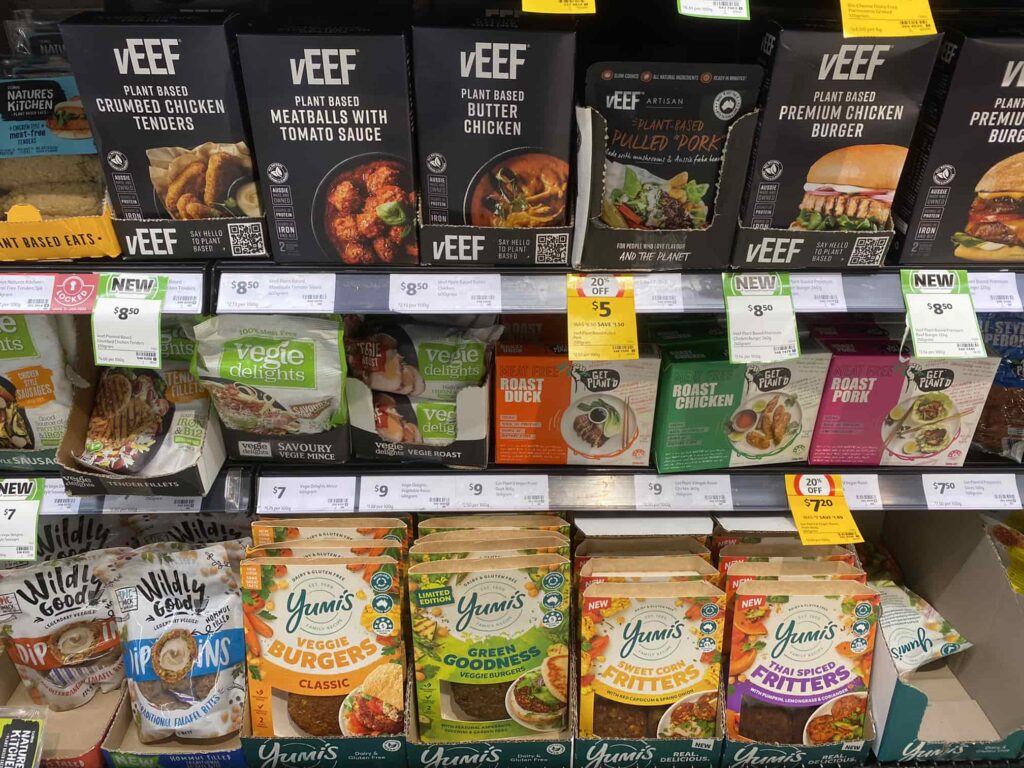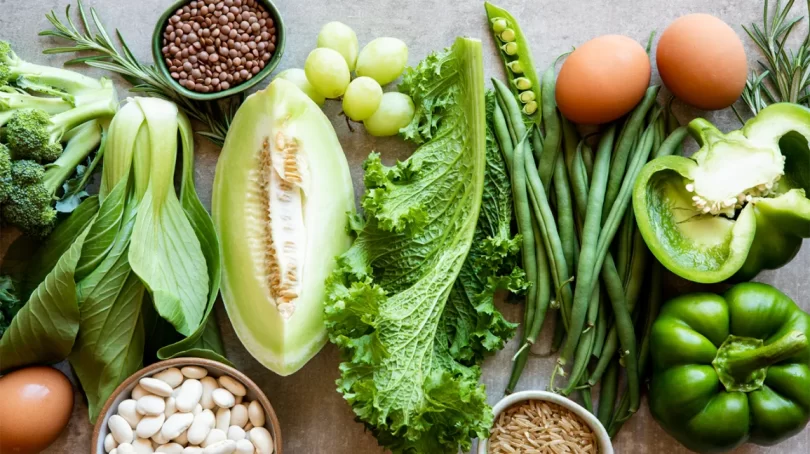Please ensure your volume is turned up before you begin the story.
The diets of Australians have diversified to include food from various countries as Australia continues to embrace a multicultural national identity.
However, diets have also shifted away from the consumption of meat, with many Australians following a vegetarian or vegan diet.
Emily Melville, 20, has been vegetarian for almost seven years and during this time has tried a vegan diet as well.
Ms Melville initially became vegetarian after her older sister adopted the diet for health reasons, before coming to understand the ethical and environmental benefits herself.
Malek and Umberger’s 2021 study on Australian food consumption found 18.7 per cent of Australian adults identified as meat reducers which included flexitarian, semi-vegetarian or low meat-eater diets.
Four per cent said they subscribe to a vegetarian diet and 1.7 per cent identified as being vegan.
While four per cent and 1.7 per cent, respectively, sound like small numbers there has been a significant increase in the number of Australians trying diets which reduce and eliminate meat.
This has increased from 1.7 million Australian adults in 2012 and almost 2.1 million Australian adults in 2016.
Ms Melville belongs to the 18-24 age demographic where the ABC’s 2019 Australian Talks National Survey found two per cent are vegan, five per cent are vegetarian and six per cent are semi-vegetarian.
This demographic is the second most likely to adopt vegan, vegetarian and semi-vegetarian diets, sitting just behind millennials who comprise 57 per cent of vegans and 61 per cent of vegetarians, according to Food Frontier’s 2019 Australian Consumer Insights report.
A key reason prompting Australians to turn to vegan and vegetarian diets is an increase in animal welfare concern, with many worried about the high and growing numbers of farm animal slaughters.
Data from the Australian Bureau of Agriculture and Resource Economics and Sciences (ABARES) reveals more than 6.7 billion farm animals were slaughtered in Australia between 2010 and 2020.
ABC’s 2019 Australia Talks National Survey found 35 per cent of Australians kept a vegan or vegetarian diet for animal welfare reasons.
This is reflected in the considerations vegans and vegetarians make when purchasing food.
Health is another reason why many Australians are turning towards these alternative diets.
27 per cent of vegan, vegetarian and semi-vegetarian respondents on ABC’s 2019 Australia Talks National Survey kept their diets for the added health benefits.
Better Health says vegan and vegetarian diets can reduce the risk of chronic diseases including obesity, coronary heart disease, hypertension, diabetes and some types of cancer.
“Vegetarians and vegans also have lower rates of illness and death from some degenerative diseases,” Better Health says.
Another causational factor in the uptake of vegan and vegetarian diets is environmentalism with many becoming aware of the sustainability of meat free diets.
A 2018 study found vegan and vegetarian diets produced 49.6 per cent fewer greenhouse gas emissions and required 26.9 per cent less energy for food production.
Additionally, the study found these diets produce an environmental footprint 41.5 per cent smaller compared to diets that included meat.
Whilst all these factors contributing to Australians adopting vegan and vegetarian diets are positive, Ms Melville said there is a level of stigma which accompanies these diets, especially that of veganism.
“At restaurants the vegan options were very limited, so I found myself having to order a lot of side dishes which I did feel very judged for, and I was a bit embarrassed,” she said.
Ms Melville also said the constant requirement to make amendments to meals when eating out was hard and made her feel like she was being a difficulty.
Aside from restaurants and cafés offering or needing to provide vegan and vegetarian meals, what other effects has the rise in meat free diets had?
Firstly, the rise in these alternative diets has increased the production of meat alternatives.
Many supermarkets now have designated vegetarian and vegan areas which offer a variety of tofu types and flavours alongside plant-based 'meat'.

According to Euromonitor, Australia is the third fastest growing vegan market globally.
Secondly, another effect which could be linked to the rise in vegan diets is increased consumption of plant based milks.
In recent years, the types of plant based milks have diversified with each dairy milk alternative differing in taste, nutritional value, popularity and sustainability.
Interestingly, the consumption of dairy milk in Australia is reducing which could impacted by the uptake in plant based milk.
A 2019 study found over one third of Australian meat eaters are willing to reduce their meat consumption.
This data combined with the growing rates of vegan and vegetarian diets in Australia suggests the number of Australians turning to these alternative diets will increase.
As diets which reduce or eliminate meat become more common, such should have positive effects to lessen the stigma around alternative diets and increase accessibility to meat free meals when eating out.
(Featured Image: Nadine Greeff/Stocksy United)

